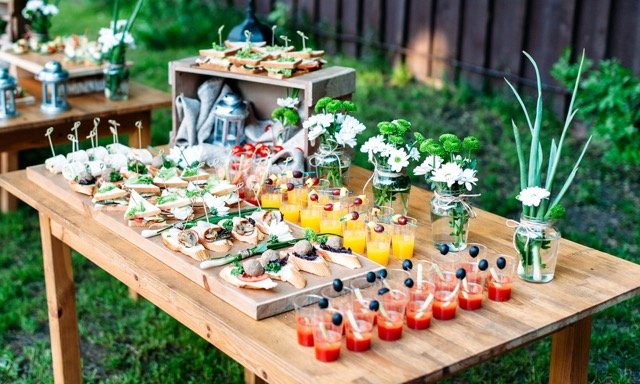Catering is a multifaceted profession that blends culinary artistry, catering near me for a party logistical precision, and impeccable service to create unforgettable experiences. From elegant weddings to corporate gatherings, caterers play a crucial role in shaping the ambiance and flavor of an event. In this article, we delve into the world of catering, exploring its history, key elements, and the skills required to excel in this demanding yet rewarding field.
History of Catering: Catering has a rich history dating back to ancient civilizations. The concept of providing food and beverages for large gatherings can be traced to the Roman Empire, where elaborate feasts were a symbol of wealth and power. In medieval Europe, royal households employed caterers to orchestrate lavish banquets for nobility and visiting dignitaries.
The modern catering industry began to take shape in the 18th century, with the rise of hotels and restaurants catering to travelers and social events. The Industrial Revolution further fueled the growth of catering, as urbanization and the rise of the middle class created a demand for dining outside the home.
Key Elements of Catering: Catering involves much more than just cooking and serving food. It encompasses a wide range of activities, including menu planning, food preparation, transportation, setup, service, and cleanup. Here are some key elements that define the art of catering:
- Menu Planning: Caterers work closely with clients to create customized menus that suit their preferences, dietary restrictions, and budget. They must have a deep understanding of food trends, seasonal availability, and cultural influences to curate a diverse and appealing menu.
- Food Preparation: The quality of food is paramount in catering. Caterers must have exceptional culinary skills to prepare a wide variety of dishes to perfection. They must also adhere to strict food safety standards to ensure the health and well-being of their clients and guests.
- Logistics: Catering involves meticulous planning and coordination to ensure that food is prepared and delivered on time, and that the event runs smoothly. Caterers must consider factors such as venue layout, equipment rental, transportation, and staffing requirements to execute flawless events.
- Presentation: The presentation of food is an art form in itself. Caterers use creative plating techniques, garnishes, and decor to enhance the visual appeal of dishes and create a memorable dining experience.
- Service: Exceptional service is a hallmark of good catering. Catering staff must be professional, courteous, and attentive to the needs of guests, ensuring that they feel welcome and well cared for throughout the event.
Skills Required for Catering: Catering is a demanding profession that requires a diverse set of skills. Here are some key skills that are essential for success in the catering industry:
- Culinary Skills: A strong foundation in culinary techniques is essential for catering. Caterers must be able to prepare a wide range of dishes to a high standard, often in large quantities.
- Creativity: Caterers must have a creative flair to develop innovative menus and presentation styles that set them apart from the competition.
- Organization: Catering involves juggling multiple tasks and deadlines. Caterers must be highly organized to ensure that everything runs smoothly.
- Communication: Effective communication is key in catering, as caterers must liaise with clients, suppliers, and staff to coordinate events and ensure that everyone is on the same page.
- Problem-Solving: Catering can be unpredictable, and caterers must be able to think on their feet and solve problems quickly and effectively.
Conclusion: Catering is a dynamic and challenging profession that requires a unique blend of culinary artistry, logistical expertise, and interpersonal skills. Caterers play a vital role in creating memorable culinary experiences for a wide range of events, from intimate gatherings to large-scale celebrations. By mastering the key elements of catering and honing their skills, caterers can delight their clients and guests and leave a lasting impression that extends far beyond the dining table.




